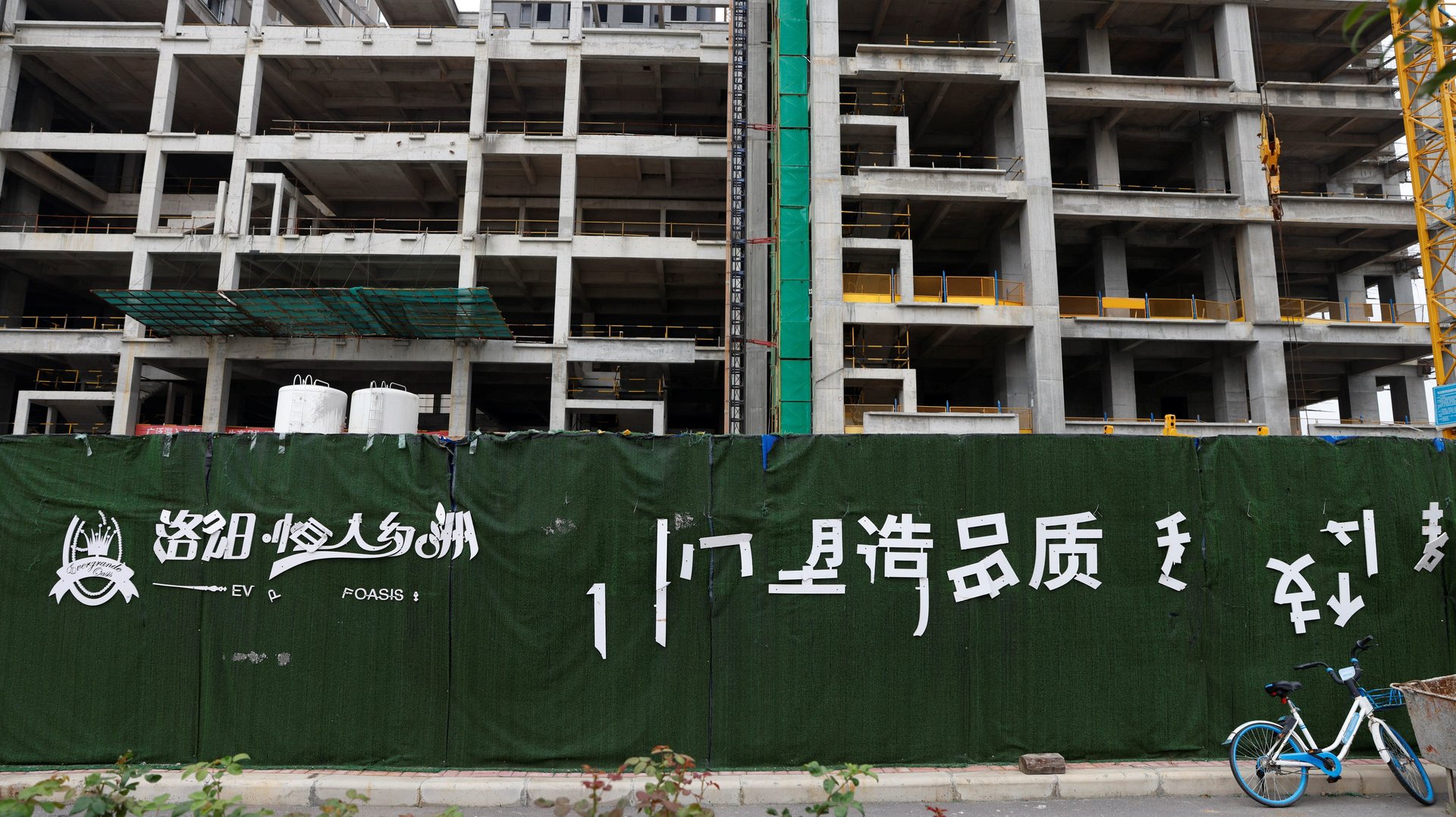Who gets priority in an Evergrande restructuring?
Though Chinese state-run tabloid Global Times hinted this week that indebted real estate developer Evergrande isn’t “too big to fail,” most economists and ratings analysts are betting that China will step in and force a restructuring of its $300 billion in debts.


Though Chinese state-run tabloid Global Times hinted this week that indebted real estate developer Evergrande isn’t “too big to fail,” most economists and ratings analysts are betting that China will step in and force a restructuring of its $300 billion in debts.
The pain of a collapse would be messy and not worth the possible advantages of the government standing its ground and letting the chips fall where they may in order to instill greater financial prudence—though that too is a goal of China’s.
“It is clear, however, that the regulators must act quickly to contain the spread of financial distress costs,” wrote Michael Pettis, professor of finance at Peking University’s Guanghua School of Management, for the Carnegie Endowment for International Peace. ”My best guess is that in the next few days or weeks, perhaps as late as the national holiday in the first week of October, they will take concrete steps and make announcements aimed at toning down the spread of financial distress costs.”
What would Evergrande’s restructuring look like?
In a web discussion hosted by S&P Global Ratings on Monday (Sept. 20), the rating agency laid out what the government’s priorities are likely to be in any restructuring effort.
“I think the most difficult part is what areas the company would want to prioritize and what area would have lesser priority, and together with the government’s perspective,” said China corporate ratings analyst Matthew Chow. He noted that “making sure the construction would be completed for the end user—that probably carries the highest priority for both the company and the government as well.” According to the New York Times, Evegrande may owe buyers 1.6 million apartments.
After that, the government would try and make sure that retail investors are also repaid “because the government wants to avoid unrest,” said Chow. “Their interests will also be taken care of as a higher priority.”
Pettis, meanwhile, believes that after retail investors, “local suppliers and contractors are likely next in line for protection, as they did not choose voluntarily to be Evergrande creditors, and any losses they might suffer could threaten in some cases to bring them down.” By one estimate, Evergrande owes suppliers and contractors $37 billion over the next 12 months.
“Because local banks are expected to continue to fund growth, they will probably be next in line, followed by other Chinese creditors,” he wrote.
That suggests, then, that dollar bond investors may be lowest on China’s priority list, and forced to accept losses or new maturity dates. About $19 billion of Evergrande’s liabilities are in the form of offshore bonds.
China’s relationship with overseas investors
While China is seeking to develop its onshore and offshore capital markets, other recent regulatory moves in the tech sector suggest that Beijing is not for the moment primarily concerned with how overseas investors will react as it aims to tidy up various parts of its economy. Last year, financial authorities in China canceled Ant Group’s dual IPO in Shanghai and Hong Kong, and this year said foreign investment is not allowed in tutoring companies that are teaching China’s national curriculum—even though foreign investors have already heavily invested in such firms.
The priorities laid out above would be in keeping with China’s renewed emphasis on “common prosperity,” of making sure wealth and income are spread around more evenly, including among small businesses. For many Chinese families, like for families anywhere, the purchase of a home is the biggest and most important investment they will make in their lives, making it all the more important for the government to protect home buyers from financial losses.